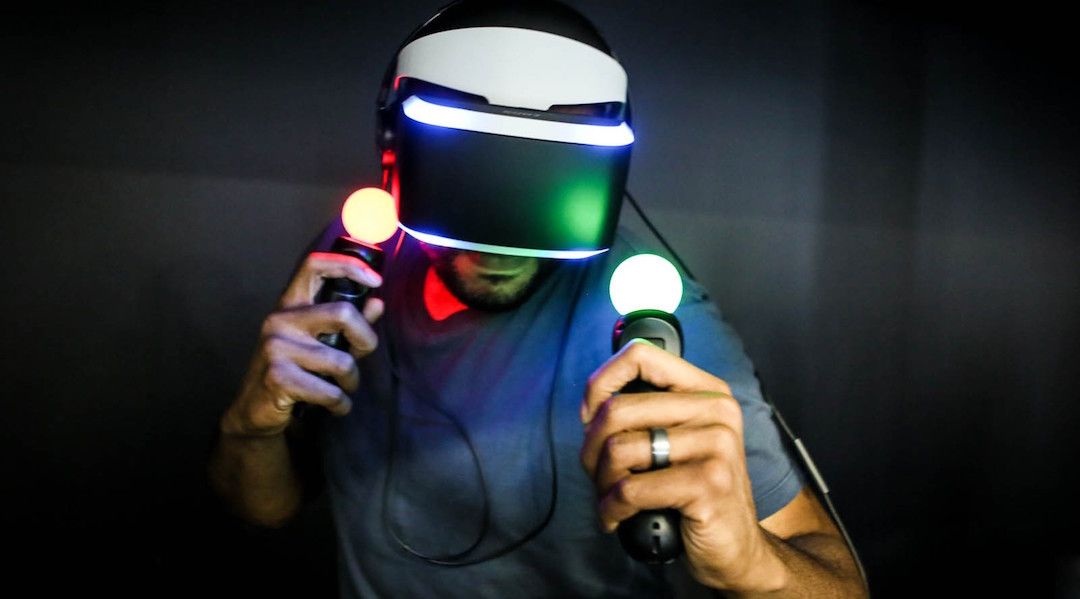Sony updates a previous statement about controller support for PlayStation VR, saying that not all games will use the DualShock 4 on the platform but could use Move or AIM.
If the fast selling pre-orders are any indication, Sony’s upcoming PlayStation VR will be a hit. Just how big of a hit, however, is yet to be determined.
In fact, there are many questions surrounding the PlayStation VR headset as a whole, including how players will interact with their virtual experiences. First, Sony revealed that every PS VR would support the DualShock 4 controller – the standard controller accessory for the PlayStation 4 – but the publisher has since backpedaled on that claim.
In a revised statement to The Verge, Sony reveals that some PlayStation VR games may not use the DualShock 4 controller. Instead these games will use either the PlayStation Move controllers or the recently revealed AIM controller.
"Nearly all PlayStation VR titles will support DualShock 4 controllers, and several games will deliver an enhanced experience that further immerses gamers with the use of peripherals such as Move or the recently announced Aim controller. There will be a limited number of titles that require Move controllers."
The AIM controller, for those that might not know, is a gun-shaped accessory with Move-like light balls attached. Some might remember the AIM controller as part of the Farpoint reveal during E3 2016.
It should be mentioned that while every PS4 does come packaged with a DualShock 4, not every PlayStation VR headset comes with a PlayStation Move controller or controllers. There is a PlayStation VR bundle available that includes two Move controllers, a PlayStation Eye, and a copy of VR Worlds, but that has been in limited supply, more so than the solo PlayStation VR headset.
While some may look at this updated statement in a negative light, it bodes well for PlayStation VR as a whole. With the previous DualShock 4 requirement, developers were limited in terms of what they could do with PS4 VR games. Moreover, VR games that are already on the market, but don’t support traditional controllers, would be left out of the PS VR fun.
Now, however, Sony can open its VR platform to even more games and presumably increase the appeal of its virtual reality slate. Games like Job Simulator, for example, can now make their way to PlayStation VR with no problem, assuming that the processing power is there. Similarly, this revised initiative gives VR developers a lot more freedom in terms of games they can work on.
It’s hard to predict just yet, but it seems as if the PlayStation VR is poised to be the headset that bridges the gap between casual consumer and hardcore in terms of VR support. Pre-orders for the PS VR have been extremely hard to come by, and the built-in install base of the PS4 is hard to overlook. We will see whether that translates into mega sales or not, but at a glance it appears PS VR is doing everything right.
PlayStation VR releases October 13, 2016.
Source: The Verge

